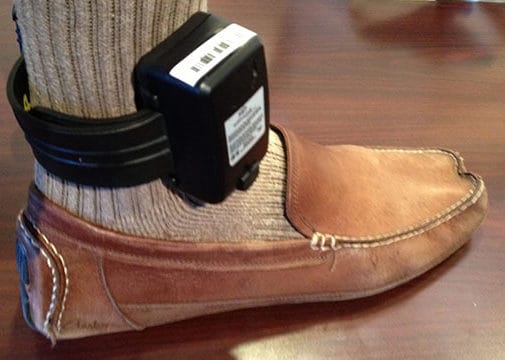House arrest in Texas
The subject of house arrest comes up often in movies and television shows but many people may not know how it works in the real world. Although it is not common for defendants to be sentenced to house arrest, it is still used in some cases. The circumstances under which house arrest can be ordered are very specific. Additionally, a sentence of house arrest may include additional punishments or restrictions that are designed to ensure the defendant complies with the court’s orders.
Have you been charged with a crime in Harris County? You need a tough lawyer that you can trust.
The Law Office of Matthew D. Sharp is prepared to help. His aggressive legal defense has helped countless clients.
What is house arrest?
House arrest is a type of court-ordered punishment that can be handed down as part of a conviction for a criminal offense. A person who is ordered to serve a term of house arrest must remain at their residence or an approved residence for the duration of their sentence. However, a person who is sentenced to a term of house arrest will not necessarily be required to spend every hour of every day inside their home.
Can you go to work on house arrest?
Depending on the orders handed down by the court, a person on house arrest may be permitted to leave their residence to go to work, to go grocery shopping, or for family emergencies. However, it is up to the judge to consider the circumstances of the case and impose restrictions on a defendant. In some cases, the orders can be very strict and may prohibit leaving the residence entirely except in emergencies.
How house arrest works
When a defendant is convicted of certain offenses, he or she may be given the opportunity to request a sentence of house arrest rather than confinement in jail. If the request is granted, the defendant will receive an order that lists the restrictions that will accompany their sentence. This order will generally list when the defendant is allowed to leave their residence and the hours of the day when they must be in their home.
A person who receives a sentence of house arrest will likely be required to wear a monitoring device. This device usually takes the form of an ankle bracelet. The defendant is usually required to pay all costs associated with the device, including any costs for upkeep or repairs.
Who is eligible for house arrest?
Not every defendant will be eligible for a house arrest sentence. In general, defendants who may be considered eligible for house arrest include:
- Defendants convicted of a non-violent offense
- Defendants without a lengthy criminal history
- First-time offenders
- Defendants who have been convicted of DWI
- Defendants who have been convicted of simple drug possession
- Defendants with a steady job that they might lose if incarcerated
- Juvenile defendants who live with parents or family members
Meeting some or all of these requirements is not a guarantee of eligibility for house arrest, but may increase the chances of a judge granting a house arrest request. A judge may be more likely to grant a house arrest request to a non-violent, first-time offender who has a steady job that helps to support family members or dependents. In this way, the defendant can fulfill financial obligations while still being punished.
How to request house arrest
If a defendant meets the court’s requirements for a house arrest sentence, that defendant may be able to request this sentence at a court hearing. Hiring a lawyer is the best way to handle this task. The lawyer may be able to construct a solid argument to convince the judge that house arrest is the best option. A lawyer may also know how to fill out and submit any paperwork that is required for a house arrest request.
Different counties may have different rules regarding house arrest sentences. For this reason, it’s best to hire a local attorney. A local attorney may be up to date on all the eligibility requirements for house arrest in the defendant’s county.
Attorney Matt Sharp Can Help
If you are wondering whether house arrest could be an option for you, please contact us. We will fight hard to protect your rights and your future. Call (713) 868-6100 or email for your free and confidential consultation.
Photo sourced from https://www.kcci.com/image/view/-/17490826/highRes/1/-/b1g309z/-/Ankle-bracelets.jpg





